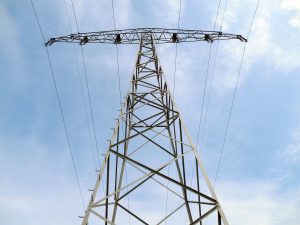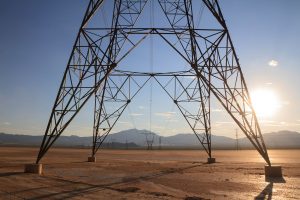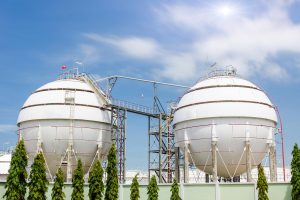LARS is a residential training addressing researchers with modeling skills who are keen to support the energy policy and regulatory debate.
During the three days in Florence, academic presentations will be followed by testimonials from the policy world and industrial representatives and journal editors in the field of energy economics and engineering will share insights on how to create a presence in academia with relevant publications. Participants will also apply what they have learned in the course by exchanging feedback on the research papers submitted by other participants, with additional coaching from the instructors in the course.
The 2024 edition will be held exclusively in a residential format, thus only a selected number of participants will be admitted.
Participants’ selection is based on the quality of the submitted research papers and a short motivation letter. We accept working papers, papers under review, and papers that have already been published. Please specify the status of your paper and why you seek additional feedback. By submitting your paper to this Autumn School, you also have the opportunity to win the annual Loyola Award.
Please note: Participants will receive a response regarding their admission after the registration deadline.
The Florence School of Regulation and the Loyola de Palacio Chair are organizing this Autumn School for Researchers in consortium with the Fraunhofer Cluster of Excellence “Integrated Energy Systems”.
LARS is for researchers with modeling skills who want to support the energy policy and regulatory debate. During the three days of the school, presentations from academics using modeling to assess policies and regulations will be followed by testimonials from (former) policymakers and industrial representatives who will share their experience working with academics. Finally, journal editors in the field of energy economics and engineering will offer suggestions and insights on how to create a presence in academia with relevant publications. We will also discuss what researchers can do when there is no time to do modeling but still want to make a valuable contribution to the debate. Participants will also apply what they have learned in the course by giving and receiving feedback on the research papers submitted by other participants, with additional coaching from the instructors in the course.
This training is the successor of 3 successful editions of the ”Summer School on Energy Systems for Young Researchers”.
The aim of the training is:
After completing the course, participants will be able to:
The training is designed for Ph.D. students, post-doctoral researchers, academics, and researchers interested in crafting research that impacts energy policy and regulation.
A minimum understanding of quantitative research methods is required. A background (Ph.D. or equivalent research experience) in engineering, energy economics, or energy-related topics is recommended
The course will last three days. The first two days are structured with presentations from academics in the morning and applied workshops and testimonials in the afternoon. The course’s final day will have insights and presentations from scholars and journal editors.
The structure of the course is as follows:
18 September 2024: Using modeling in a policy/regulatory debate
19 September 2024: No time for modeling? Using conceptual frameworks in a policy/regulatory debate
20 September 2024: How to publish and build an academic career with applied research
The workload is expected to be 8 hours/day during the course and approximately ten to fifteen hours before the beginning of the course.
Please note that only a selected number of participants will be admitted. Participants are required to enclose to their registration form:
Please note that the information above is mandatory to guarantee a certain level of advancement and to enable participants to be efficiently matched for peer reviewing and further interaction.
Participants will receive a response regarding their admission after the registration deadline.
Each year, the Florence School of Regulation – Energy and Climate (FSR Energy & Climate) awards scholarships for a wide variety of training courses targeting a broad audience of professionals and academics.
Applications will be assessed by a Selection Committee of FSR members on a yearly basis. The successful candidates will be informed after February 2024 and will be provided with all relevant information on how to enroll in the online course or residential training of their choice.
Send your application by 28 January 2024.
General Fee: 500 EUR
Cancellation policy
Paid registration fee is non-refundable. However, registrant substitution may be made up to 20 days before the start date of the course.
Contact: fsr.secretariat@eui.eu
LARS is a 3-day residential training addressing researchers with modeling skills who are keen to support the energy policy and regulatory debate. Learn more and join us in Florence!
Join us for a unique opportunity to reconnect and stay updated on the latest policy developments in the fields you previously studied.
LEARN MORE AND REGISTER
EU Electricity Network Codes & the Clean Energy Package Enter the world of electricity markets in Europe ‘Evolution of electricity markets in Europe’ is an 9-week online course in collaboration…

Crafting research with impact on energy policy and regulation LARS is a residential training addressing researchers with modeling skills who are keen to support the energy policy and regulatory debate.…

Regulation of energy utilities All you need to know in one professional course With the Annual Training on the Regulation of Energy Utilities, you will gain extensive knowledge of the fundamental principles of…

Digitalisation is transforming transport and mobility. Understanding the regulatory implications of digitalisation requires knowledge of EU digital law and policy (DSA, DMA, Data Act) and the regulatory strategy in transport…

Learn how to master electricity markets and key issues around their reform The energy crisis that was triggered by the Russian war in Ukraine has led European power markets to…

This new training course on the Regulation and Integration of Renewable Energy provides a comprehensive introduction to the topic with the latest updates, including developments in policy and regulation in…

Understand the basic principles and most topical issues of gas sector regulation in Europe and worldwide Building on our flagship ‘Specialised Training on the Regulation of Gas Markets’, this new…

This FSR-ACER residential course in Florence covers the scope of the EU Regulation on Wholesale Energy Market Integrity and Transparency (REMIT) and the way in which it is implemented. Mapping…

Learn the fundamental regulatory principles of the electricity and gas sectors through hands-on, real case activities and examples with instructors from national regulatory authorities from Europe and North America, the…
To meet, discuss and learn in the channel that suits you best.